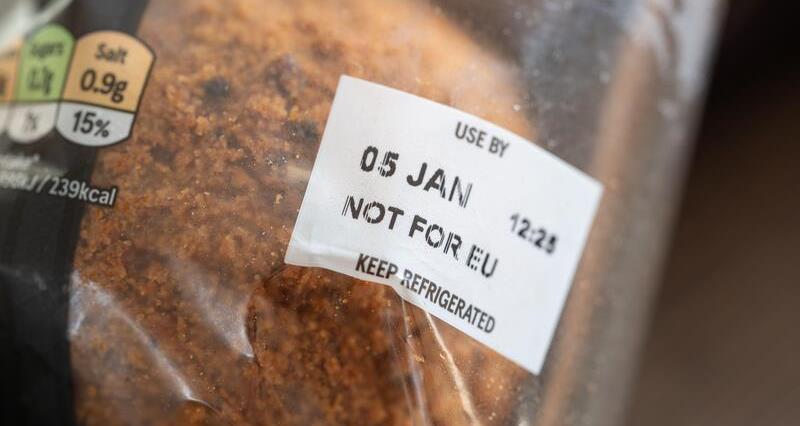
Farmers are being urged to share their views on plans to roll out 'Not for EU' labelling on food products amid concern the move could cause public confusion.
The plans were brought in as part of concessions secured with the EU under the Windsor Framework Agreement, which sets out post-Brexit trade arrangements for Northern Ireland.
The labels are intended to guarantee that food sold in the province that have not undergone EU border checks do not pass into the Republic of Ireland, which is part of the EU’s single market.
The UK government has committed to introduce ‘Not for EU’ labelling across the whole of the UK, which must be displayed on a range of agri-food products.
This is irrespective of if they have been produced in Great Britain or imported from abroad.
The NFU said it had concerns that this approach could lead to consumer confusion and misconceptions about the quality of food that UK farmers produce.
It could also lead to additional costs for domestic suppliers of food and products for sale across Great Britain, the union warned.
And it could lead to barriers to trade with the EU, and particularly the Republic of Ireland, which remains the UK’s largest overseas food and drink destination.
Defra has launched a consultation to look at how the labelling would work in practice, whether any exemptions should be implemented and who should be responsible for compliance and the enforcement of requirements.
The NFU said it was seeking views from farmers: "NFU members – please share your views with us on the government's plans for the new labelling requirement that will be applied to a range of food products sold across Great Britain.
"Your answers will help to inform future policy as part of the NFU's response to Defra's 'Marking of Retail Goods' consultation."
It follows a recent survey showing that almost one in five British consumers are less likely to buy food labelled 'Not for EU'.
The poll, undertaken by Survation on behalf of anti-Brexit campaign group Best for Britain, also revealed that only three in ten (28%) understand where ‘Not for EU’ products are manufactured.
Responding to the survey results, Naomi Smith, CEO of Best for Britain, said "almost every agricultural challenge has been made more difficult by Brexit."
"This government has continued to hammer farmers and food suppliers with terrible new trade deals which undercut British standards," she added.
“The next government must commit to a youth mobility visa scheme to tackle labour shortages, an independent board of trade to protect farmers from fire-sale trade deals, and beneficial regulatory alignment with our largest market to slash red tape.”
The Food and Drink Federation warned that the labels would cost “hundreds of millions of pounds” and would lead to higher prices amid a cost of living crisis.
